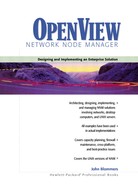Who Resolves DNS Problems?
Domain name servers are organized in a distributed hierarchy. Authority for the information they serve is delegated to authoritative sites, so it isn’t unusual to have many host masters. Any or all of them may be able to take credit when a problem raises its head. Typical DNS problems include:
a name server is lame
a record is deleted
reverse lookups fail
old data is returned
a lookup times out
the wrong name server is authoritative
some router interface IP addresses are not returned
forward and reverse translations don’t match
The host masters get their information from system administrators. If a router administrator doesn’t supply all the IP addresses in a router to the host master, then credit belongs to the router administrator. If a reverse lookup fails and the forward lookup succeeds, it may be because the host master has not configured the inverse records properly. When a system administrator decommissions a server and asks the host master to delete the corresponding DNS records, then a failed name lookup is expected and the error is with the user.
Occasionally, a DNS problem is not caused by a name server but by the resolver routine at the client:
the wrong name server is used by a resolver
the SEARCH path scans the wrong domain
the default domain name is incorrect
the resolver can’t handle a large number of addresses
Credit for resolver problems isn’t due to the host masters, but lies with the administrators of the end user systems, who might be the users themselves. They may configure their resolvers to take advantage of multiple name resolution mechanisms. The order in which these mechanisms are accessed is platform-dependent. In UNIX, the order they are searched is specified in the /etc/nsswitch.conf file. These mechanisms include:
domain name service
WINS
/etc/hosts
LMHOSTS
NIS
NetBIOS name request (a broadcast mechanism)
Tools for troubleshooting DNS problems include:
examine the resolver configuration files
nslookup command
ping command (packet internet groper)
dig command (domain information groper)
Finally, the coupling between DHCP servers and the dynamic updates they (are supposed to) send to DNS servers may be at fault, suggesting the DCHP administrators might also share credit when a DNS-related problem surfaces.
